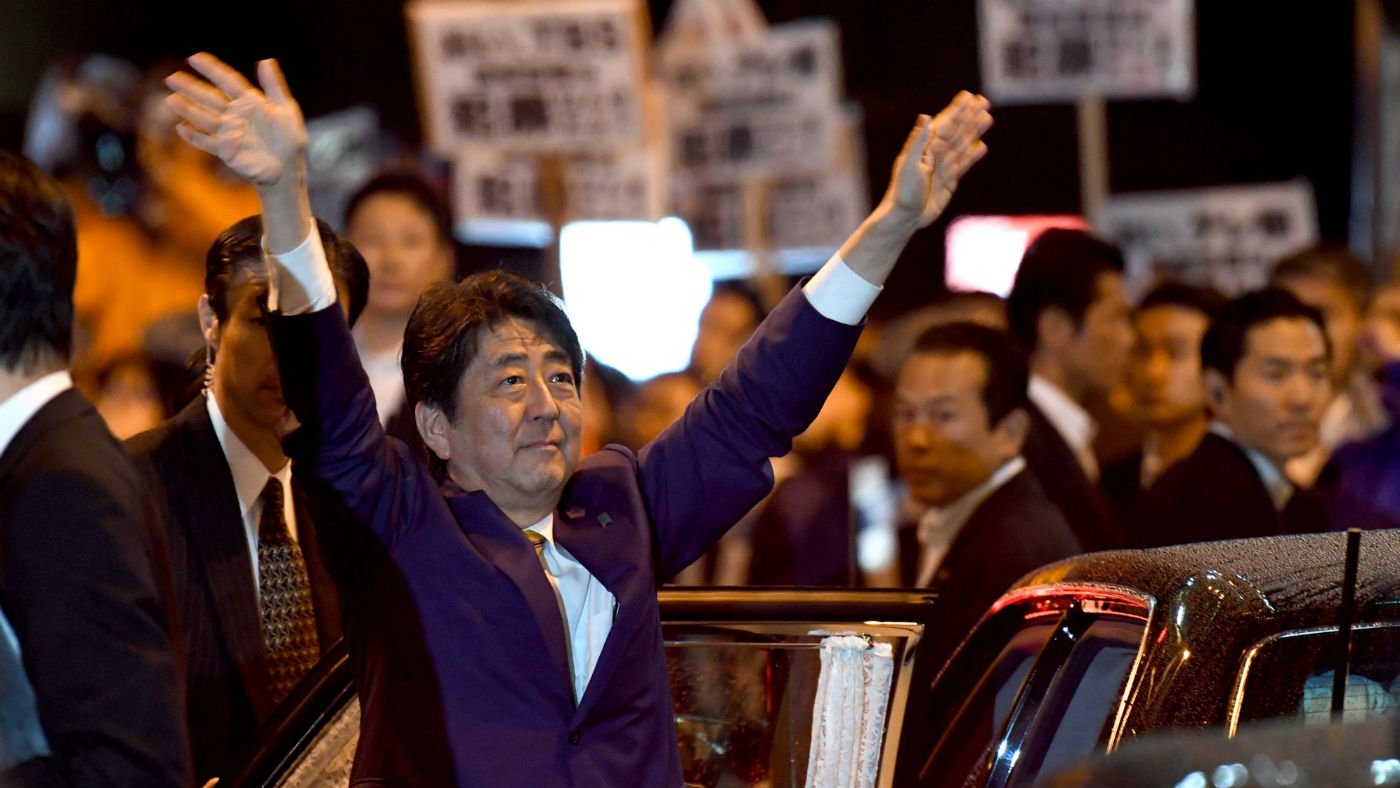Shinzo Abe wins landslide victory in Japan
The Prime Minister's gamble pays off, paving the way for constitutional reform

A free daily email with the biggest news stories of the day – and the best features from TheWeek.com
You are now subscribed
Your newsletter sign-up was successful
Japan’s Prime Minister Shinzo Abe secured a landslide victory yesterday, when his gamble to call a snap general election appeared to pay off.
Abe’s ruling Liberal Democratic Party-led coalition is on course to win 310 seats in the 475-member lower house, allowing it to retain its two-thirds super majority.
The BBC says securing the majority, which allows the government to make changes to the constitution, “is vital to Mr Abe’s ambition to revise Japan’s post-war, pacifist constitution”.
The Week
Escape your echo chamber. Get the facts behind the news, plus analysis from multiple perspectives.

Sign up for The Week's Free Newsletters
From our morning news briefing to a weekly Good News Newsletter, get the best of The Week delivered directly to your inbox.
From our morning news briefing to a weekly Good News Newsletter, get the best of The Week delivered directly to your inbox.
“Parties in favour of amending the US-drafted charter won nearly 80% of the seats,” Reuters reports.
Under Article Nine of the 1947 document, Japan is in theory prohibited from maintaining armed forces and committed to a pacifist, non-interventionist foreign policy.
A controversial security law was passed in 2015 allowing the armed forces to engage in collective self-defence or come to the aid of the US and other allies overseas. “Abe has made it clear he wants to alter the constitution to reflect new threats to national security from a rising China, a nuclear-armed North Korea and international terrorism,” says The Guardian.
The paper says the Prime Minister and his allies argue the revision “would merely give official recognition to the status quo, given that loose interpretations of the constitution have enabled Japan to build a large and well-equipped military”. However, it remains “a controversial proposal that strikes at the heart of the country’s post-war identity”, says CNN.
A free daily email with the biggest news stories of the day – and the best features from TheWeek.com
Even with his two-thirds super majority, “altering Japan’s constitution is a heavy lift” for Abe, with all measures needing to be approved in a referendum, says the broadcaster.
A third term?
The election result raises the chance of Abe securing a third three-year term as leader of the LDP when the party votes next September. This would give him the opportunity to become Japan’s longest-serving prime minister.
The result appears to vindicate Abe’s decision to call a snap election in September, a year earlier than expected. The Prime Minister insisted he needed a fresh mandate to deal with the “national crisis” facing Japan, namely the threats posed by North Korea and tax reform.
His victory comes despite public opinion polls showing lukewarm support for the his policies and despite competition from a party founded by Tokyo’s popular governor, Yuriko Koike, and a new centre-left party.
Over the summer, Abe’s approval ratings dipped below 30% as he was dogged by corruption and cronyism scandals. Many Japanese thought his hawkish attitude towards North Korea was provoking Kim Jong-Un, rather than facilitating a diplomatic solution to the crisis.
The New York Times says Abe’s victory “did not represent an endorsement of his platform so much as a lack of strong alternatives”.
At a time when the economy has been slowly improving, North Korean missiles have been flying over Japan and some are worried about the unpredictability of the US under President Trump, “voters chose stability”, says the paper.